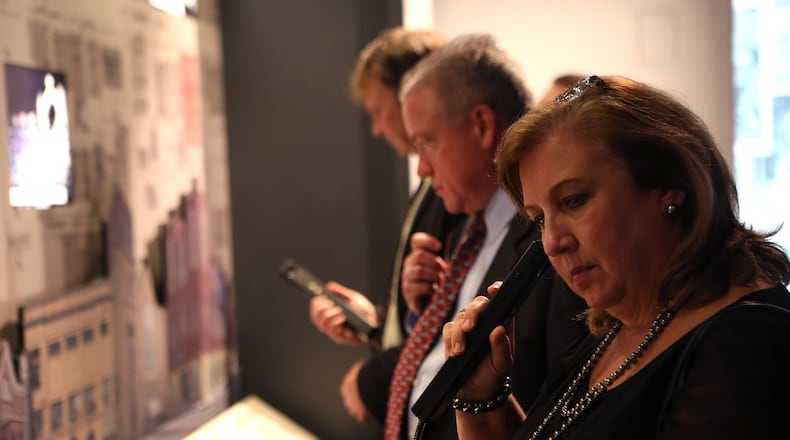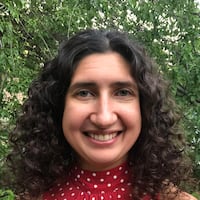The Gwinnett County Recreation Authority is expected to discuss the newly controversial “Promised Land” on Thursday amid a prominent historian’s accusations that a top county official wants to “whitewash the story” of slavery at the former plantation on Gwinnett’s southern tip.
Ruth Abram told The Atlanta Journal-Constitution she is the great-great-great granddaughter of Thomas Maguire, the Irish immigrant who came to own a 1,000-acre plantation he dubbed “The Promised Land.” Abram said she began developing a plan for a museum at the former plantation house, but her interactions with Community Services Director Tina Fleming during and after a 2021 visit went so poorly that she is no longer working on the project.
“They have an opportunity to do something important in terms of black and white history in America and they’re snubbing their noses at it,” Abram said.
A county spokeswoman said Fleming was unavailable to comment for this article.
“The Promised Land” took on a new meaning in the 1920s, when a Black man named Robert Livsey bought about 100 acres of the former plantation. Over generations, the Livsey and Anderson families built homes, opened businesses and turned their slice of earth into a thriving Black community.
Gwinnett County in the past several years has purchased the old plantation home and about 4.5 acres from land from the Livsey family, intending to turn it into a museum and park highlighting the area’s history. Their plans became contentious last month when the county notified Robert Livsey’s son, 92-year-old Thomas, of its intentions to acquire 10 more acres through eminent domain, its power to take private land for public purposes.
The county recently sent another letter to Thomas Livsey and his wife, Dorethia, saying it would no longer try to acquire those properties through eminent domain, a negotiated sale or any other means.
Dorethia Livsey, 86, said she was “elated” to see the letter and thanked all the friends and neighbors who helped her family fight the county.
“We are excited that the battle is over for now,” she said.
Commission Chairwoman Nicole Love Hendrickson did not immediately comment on the decision. Five-year-old plans for the park assumed the county would come to own the land recently in question.
Abram said she reached out to Gwinnett County in 2019 and offered to draft a plan for the museum. She had already won accolades for founding the Tenement Museum in New York and the International Coalition of Sites of Conscience, a network of memorials that promote human rights. The daughter of civil rights activists Morris Abram and Jane Maguire, she splits her time between New York and Denver.
Abram said charged the county $90,000 for research, equipment and travel costs. Part of her research involved tracking down the descendants of people Thomas Maguire enslaved.
“I think telling their story is a kind of reparation,” she said.
Correspondence the AJC obtained through an open records request shows Fleming met with Abram numerous times in November 2021, when Abram came to visit.
Abram organized walk-throughs of what she described as “still evolving” plans for the museum, which included multimedia presentations on the Maguire family, the people they enslaved, and the Livseys.
She invited more than 100 people to a community center in Centerville to help contribute, including leaders of Black fraternities and sororities, historically Black colleges, and Masonic lodges, as Maguire was a Freemason.
Abram said Fleming disinvited everyone from her list except about 10 people and county staff. She also said Fleming told her not to use the word “plantation” because local people wouldn’t like it, and that Fleming’s only reaction to her plan was to praise the work Maguire had done for the community.
During one meeting, which included a few historians from Kennesaw State University, Abram said Fleming ordered county staff to not participate in a reading of slave laws.
Correspondence shows Abram complained about the visit to the Gwinnett Historical Restoration & Preservation Board and Hendrickson, who ordered an investigation. Abram told Hendrickson she would not continue working on the project unless Fleming “is removed.”
A follow-up letter indicates County Attorney Mike Ludwiczak called Abram and attributed the problems to “a misunderstanding,” telling Abram a project could be shared with community members only after the county commission approved it. Abram’s reply argued that Fleming rejected her offer to present a draft plan to the commission first.
In response to the AJC’s reporting on the eminent domain controversy, Abram sent a letter to the newspaper and some community members outlining her experience. The recreation board also has the letter.
The recreation board, which oversees projects and advises the Board of Commissioners, called a special meeting Thursday at 2 p.m. at the Gwinnett Justice and Administration Center, 75 Langley Drive in Lawrenceville. The Promised Land leads the agenda.
About the Author
Keep Reading
The Latest
Featured



